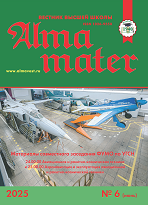https://doi.org/10.20339/AM.1-18.116
А.Н. Неврюев,
старший преподаватель
Финансовый университет при Правительстве РФ
e-mail: ANNevryuev@fa.ru
Анализируется тема, как и кому доверяют население в аспекте проведения различных реформ, остающаяся крайне противоречивым предметом исследования в психологической науке. В данной работе проводится анализ теоретических подходов, которые занимаются изучением этой проблематики. Представлен обзор современных психологических исследований, которые позволяют сделать вывод о том, что существует ограниченное количество факторов, которые влияют на формирование доверия у людей к проводимым реформам: доверие к источнику информации, уровень согласованности мнения среди людей по вопросу экономической реформы, выраженная идентичность по отношению к группе, которая будет затронута данной реформой. Кроме того, к факторам, которые формируют доверие, относятся и свойства самой информации: насколько, к примеру, таковая доступна населению или скорость ее распространения и обсуждения. Также обсуждаются возможные дальнейшие направления исследований в данной области.
Ключевые слова: доверие, экономические реформы, теория культивирования, СМИ, современная медиапродукция, информационно-психологическое воздействие.
Литература
- Galtung, J. Peace Journalism as an Ethical Challenge. Global Media Journal: Mediterranean Edition. 2006, no. 1, pp. 58–83.
- Gerbner, G. Cultural indicators: The case of violence in television drama. The Annals of the American Academy of Political and Social Science. 1970, vol. 388, no. 1, pp. 69–81.
- Gerbner, G. Cultural indicators: The case of violence in television drama. The Annals of the American Academy of Political and Social Science. 1970, vol. 388, no. 1, p. 69.
- Gerbner, G., Gross, L., Morgan, M., Signorielli, N., Shanahan, J. Growing up with television: Cultivation processes. In: Media effects: Advances in theory and research. Mahwah, NJ, US: Lawrence Erlbaum Associates Publishers. 2002, pp. 43–67.
- Potter, W.J. Perceived reality and the cultivation hypothesis. Journal of Broadcasting & Electronic Media. 1986, no. 32, pp. 23–41.
- Morgan, M., Shanahan, J. The state of cultivation. Journal of Broadcasting & Electronic Media. 2010, vol. 54, no. 2, pp. 337–355.
- Herman, E.S., Chomsky, N. A Propaganda Model in Manufacturing Consent. In: The Political Economy of the Mass Media. New York, 1988.
- Bernays, E. Manipulating public opinion: The why and the how. American Journal of Sociology. 1928, vol. 33, no. 6, pp. 958–971, 51.
- Bernays, E. Manipulating public opinion: The why and the how. American Journal of Sociology. 1928, vol. 33, no. 6, pp. 958–971, 51.
- Gunther, A.C., Chia, S.C-Y. Predicting pluralistic ignorance: The hostile media perception and its consequences. Journalism and Mass Communication Quarterly. 2001, vol. 78, pp. 688–701.
- Ho, S.S., Binder, A.R., Becker, A.B., Moy, P., Scheufele, D.A., Brossard, D., Gunther, A.C. The role of perceptions of media bias in general and issue-specific political participation. Mass Communication and Society. 2011, no. 14, pp. 343–374.
- Rojas, H. Strategy versus understanding: How orientations towards political conversation influence political engagement. Communication Research. 2008, no. 35, pp. 452–480.
- Hwang, H., Pan, Z., Sun, Y. Influence of hostile media perception on willingness to engage in discursive activities: An examination of the mediating role of media indignation. Media Psychology. 2008, no. 11, pp. 76–97.
- Wei, R., Chia, S.C., Lo, V.H. Third-person effect and hostile media perception influences on voter attitudes toward polls in the 2008 US presidential election. International Journal of Public Opinion Research. 2011, no. 23, pp. 169–190.
- Norris, P.A. Virtuous Circle: Political Communications in Postindustrial Societies. Cambridge: Cambridge University Press, 2000.
- Page, B.I., Shapiro, R.Y. The Rational Public: Fifty Years of Trends in Americans’ Policy Preferences. Chicago, IL: University of Chicago Press, 1992.
- Gavin, N.T., Sanders, D. The Press and Its Influence on British Political Attitudes under New Labor. Political Studies. 2003, vol. 51, no. 3, pp. 573–591.
- Norris, P., Curtice, J., Sanders, D., Scammell, M., Semetko, H.A. On Message: Communicating the Campaign. London, 1999.
- Zaller, J.R. The Myth of Massive Media Impact Revived: New Support for a Discredited Idea. In: Mutz, D.C., Sniderman, P.M., Brody, R.M. (Еds.). Political Persuasion and Attitude Change. Chicago, IL: University of Chicago Press, 1996.
- Zaller, J.R. The Nature and Origins of Mass Opinion. New York: Cambridge University Press, 1992.
- Hooghe, L., Marks, G. Does Identity or Economic Rationality Drive Public Opinion on European Integration. Political Science and Politics. 2004, vol. 37, no. 3, pp. 415–420.
- Azrout, R., Van Spanje, J., De Vreese, C. When News Matters: Media Effects on Public Support for European Union Enlargement in 21 Countries. Journal of Common Market Studies. 2012, vol. 50, no. 5, pp. 691–708.
- Boomgaarden, H.G., Vliegenthart, R. Explaining the Rise of Anti-Immigrant Parties: The Role of News Media Content. Electoral Studies. 2007, vol. 26, pp. 404–417.
- Reeves, A., De Vries, R. Does media coverage influence public attitudes towards welfare recipients? The impact of the 2011 English riots. The British Journal of Sociology. 2016, vol. 67, no. 2, pp. 281–306.
- Arceneaux, K., Johnson, M., Cryderman, J. Communication, Persuasion, and the Conditioning Value of Selective Exposure: Like Minds May Unite and Divide but They Mostly Tune Out. Political Communication. 2013, vol. 30, no. 2, pp. 213–231.
- Prior, M. Media and Political Polarization. Annual Review of Political Science. 2013, no. 16, pp. 101–127.
- Kepplinger, H.M. Mediatization of Politics: Theory and Data. Journal of Communication. 2002, vol. 52, no. 4, pp. 972–986.
- Mazzoleni, G., Schulz, W. “Mediatization” of Politics: A Challenge for Democracy? Political Communication. 1999, vol. 16, no. 3, pp. 247–261.
- Stromback, J. Four Phases of Mediatization: An Analysis of the Mediatization of Politics. International Journal of Press Politics. 2008, vol. 13, no. 3, pp. 228–246.
- Shanahan, E.A., McBeth, M.K., Hathaway, P.L. Narrative Policy Framework: The Influence of Media Policy Narratives on Public Opinion. Politics & Policy. 2011, vol. 39, no. 3, pp. 373–400.
- Bucataru, V. Stagnation on the Road to Europe: Moldova after the Presidential Election. Washington, DC, USA: Freedom House, 2016.
Статья подготовлена по результатам исследований, выполненных за счет бюджетных средств по государственному заданию Финансового университета 2017 г.











.png)






